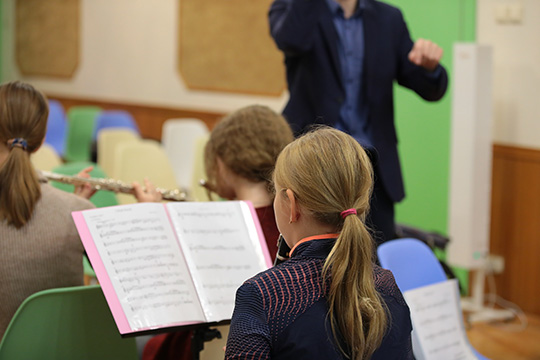
by Peter Boonshaft | Sep 25, 2018 | Boonshaft's Blog
When our students start to feel frustrated by that which doesn’t come easy, by that which is a profound challenge, by that which makes them question their efforts, I can think of no better lesson, no better words than those of Eloise Ristad when she wrote, “…it is...

by Peter Boonshaft | Sep 18, 2018 | Boonshaft's Blog
When you think of what we do, and remember the words of Albert Einstein when he stated: “It is the supreme art of the teacher to awaken joy in creative expression and knowledge.” It is humbling. It is daunting. It is almost overwhelming. But it is also inspiring and...

by Peter Boonshaft | Sep 11, 2018 | Boonshaft's Blog
I am convinced that half the problem with teaching students in a band is that many of them have a very distorted vantage point from which they hear the group, by nature of where they are seated. Things like ensemble balance, section balance, layers of compositional...

by Peter Boonshaft | May 23, 2018 | Boonshaft's Blog
As I look out at my students while rehearsing, I so often see bad habits reveal themselves. And what gets me is that I have mentioned those bad habits over and over and over. It can be debilitating. When I take the time to think about why this is happening, I usually...

by Peter Boonshaft | May 15, 2018 | Boonshaft's Blog
I like a fast-paced rehearsal. No, I love a fast-paced rehearsal. I think I can keep my students awake and energized better, and get more done in less time. But that’s me. I also know that a moderately-paced rehearsal can no doubt be wonderfully effective, and that a...

by Peter Boonshaft | May 8, 2018 | Boonshaft's Blog
In the first moments of your next rehearsal, after getting the students quiet and focused, go to the board and with no words of explanation simply write these words: “I haven’t understood a bar of music in my life, but I have felt it. – Igor Stravinsky.” Then,...









 We look forward to the evolution of this exciting program, and welcome feedback on how we can further enhance the work that you do in music education.
We are excited to offer your program the opportunity to join the KHS America Academic Alliance today.
We look forward to the evolution of this exciting program, and welcome feedback on how we can further enhance the work that you do in music education.
We are excited to offer your program the opportunity to join the KHS America Academic Alliance today.